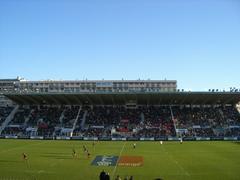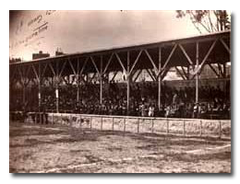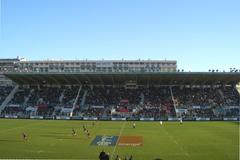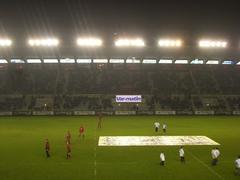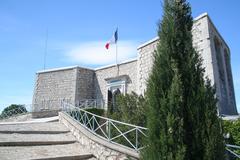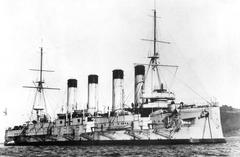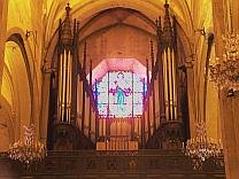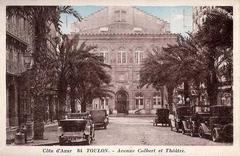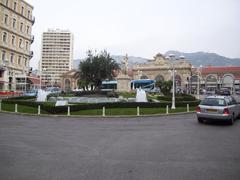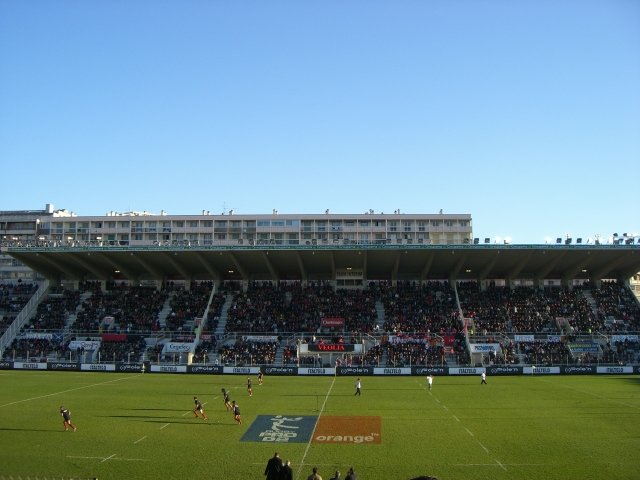
Stade Mayol Visiting Hours, Tickets, and Guide to Toulon Historical Sites
Date: 14/06/2025
Introduction to Stade Mayol and Its Significance in Toulon
Stade Mayol, located in the vibrant heart of Toulon, France, stands as a testament to the city’s rugby heritage and cultural identity. More than a sports venue, it is an emblem of community spirit, historical resilience, and passionate tradition. Established in 1920 thanks to the philanthropy of Félix Mayol—a renowned Toulon-born music hall singer—the stadium was envisioned as a sporting home for local youth. Today, it is a cherished urban landmark, uniquely integrated within the city center, near the bustling port and Mont Faron (Wikipedia - Stade Mayol, Marvellous Provence).
Visitors to Stade Mayol encounter not only the excitement of rugby matches but also a tapestry of history shaped by war, urban development, and the enduring traditions of the Rugby Club Toulonnais (RCT). The stadium’s emblematic lily of the valley honors Mayol’s legacy, while the “Pilou-Pilou” chant and stands named after legendary players reflect Toulon’s deep-rooted rugby culture (RCToulon.com, Provence Med).
This guide equips visitors with essential information on visiting hours, ticketing, accessibility, guided tours, nearby attractions, and insider tips to fully experience Stade Mayol—offering both the thrill of sporting tradition and a genuine glimpse into Toulon’s soul (ProvenceMed, Marvellous Provence).
Contents
- Origins and Foundation
- Location and Urban Significance
- Wartime Damage and Postwar Reconstruction
- Modernization and Urban Development
- Sporting and Cultural Milestones
- Visiting Information: Hours, Tickets & Accessibility
- Traditions and Community Identity
- Tips for Visitors
- Guided Tour Experience
- FAQ
- Conclusion
- Sources
Origins and Foundation
Stade Mayol’s origins are intimately tied to Félix Mayol, who, in 1919, purchased a neglected velodrome and invested his personal funds (including the rights to some of his songs) to secure the land for RCT (Wikipedia - Stade Mayol). Mayol recognized the need for Toulon’s youth to have a proper sports ground, symbolically initiating construction himself. The stadium was inaugurated on March 28, 1920, with city officials and Mayol present, marking the beginning of a lasting legacy (Wikipedia - Stade Mayol).
Location and Urban Significance
Stade Mayol is unique among French stadiums due to its central location—nestled downtown near the port, Cours Lafayette, and the historic Besagne district (Wikipedia - Stade Mayol). Its integration into Toulon’s urban landscape means fans, locals, and visitors gather in nearby brasseries and public squares, creating a vibrant pre- and post-match atmosphere. Contemporary accounts have described it as “the only stadium in France so close to the city center,” underscoring its importance to daily life (Wikipedia - Stade Mayol).
Wartime Damage and Postwar Reconstruction
During World War II, Stade Mayol was heavily damaged, with more than 50 bomb craters recorded on its grounds (Wikipedia - Stade Mayol). Reconstruction began in 1947, restoring the stadium for future generations. Further renovations in 1965, 1983, and throughout the 1990s modernized the venue, expanding capacity to accommodate growing support for RCT (RCToulon.com).
Modernization and Urban Development
A major commercial complex was constructed on the Besagne site behind the stadium in 1990, providing a 3,000-space underground parking lot, convention center, and hotel (Wikipedia - Stade Mayol). Renovations in the 2000s and 2010s increased seating to over 17,000, with record attendance reaching 18,131 spectators in April 2018 (RCToulon.com, Wikipedia - Stade Mayol).
Sporting and Cultural Milestones
Stade Mayol has hosted countless RCT victories—including multiple French Top 14 titles and three consecutive European Rugby Champions Cup wins (2013–2015)—and international matches against teams such as New Zealand’s All Blacks and Australia (Provence Med). The stadium also hosted the Festival Espoirs de Toulon youth football tournament and concerts by global stars like Bob Marley (RCToulon.com).
Visiting Information: Hours, Tickets & Accessibility
Visiting Hours
Stade Mayol is open on match days and for guided tours by appointment (RCToulon.com). Guided tours typically run on Wednesdays and select Thursdays from 10:00 to 11:30 AM, with extra dates during school holidays (ProvenceMed).
Ticket Information
- Match Tickets: Purchase online via the RCT website or at the stadium box office. Early booking is advised due to high demand.
- Tour Tickets: Advance reservation required through the Toulon Tourist Office or online (ProvenceMed).
- Prices:
- Adults: €11
- Children (5–16): €6.50
- Under 5: Free
- Persons with disabilities: Free
Accessibility
Stade Mayol is accessible for visitors with reduced mobility, with ramps, elevators, and designated seating. Notify the venue of special needs when booking (marvellous-provence.com).
Parking and Public Transport
Use the adjacent 3,000-space Parking Mayol. The stadium is easily reached on foot or via Toulon’s bus network (marvellous-provence.com).
Traditions and Community Identity
The “Pilou-Pilou” chant, created in the 1940s, is led by a cheerleader and echoed by fans as RCT enters the pitch (Wikipedia - Stade Mayol). The stands—named after club legends Bonnus, Lafontan, Finale, and Delangre—reinforce the club’s connection to local history (Provence Med). The stadium’s proximity to the port and market brings supporters together for pre- and post-match celebrations, making it a true hub of community identity.
Tips for Visitors
- Arrive Early: Soak up the atmosphere, explore the RCT Café, and enjoy local markets.
- Best Photo Spots: The rugby ball statue outside, commemorative plaques, and views of Mont Faron and the port.
- Combine Your Visit: Explore the Cours Lafayette market, Toulon’s Old Town, and the waterfront for a full experience (triphobo.com).
- Family-Friendly: Tours are suitable for children; under-fives enter free.
Guided Tour Experience
What to Expect
Guided tours provide a 90-minute behind-the-scenes look at Stade Mayol, including access to locker rooms, tunnels, the pitch, and restricted team areas (ProvenceMed). Learn about Félix Mayol’s legacy, the club’s legendary players, and the origins of signature traditions. Most tours are in French; English tours may be available with advance notice.
Practical Details
- Meeting Point: Toulon Tourist Office, 12 place Louis Blanc, at the base of Cours Lafayette.
- Weather: Tours may be rescheduled due to weather.
- Dress Code: Comfortable shoes and weather-appropriate attire recommended.
- Security: Large bags subject to checks.
FAQ
Q: Can I visit Stade Mayol outside match days?
A: Yes, guided tours are available by appointment.
Q: How do I buy tickets?
A: For matches, buy online or at the stadium. For tours, book via the Toulon Tourist Office or online (ProvenceMed).
Q: Is the stadium accessible?
A: Yes, with facilities for visitors with reduced mobility.
Q: Are there English-language tours?
A: Most tours are in French; English may be available with advance notice.
Q: What else can I visit nearby?
A: Cours Lafayette market, Toulon harbor, the RCT Café, and Avenue of Legends.
Conclusion
Stade Mayol is an essential destination for rugby enthusiasts and cultural travelers alike. Its central location, rich traditions, and vibrant match-day atmosphere provide an authentic window into Toulon’s history and community. Whether attending a thrilling RCT game, joining a guided tour, or exploring nearby attractions, visitors will find Stade Mayol offers a unique and memorable experience.
For real-time updates on events, ticket availability, and guided tours, download the Audiala app and follow Rugby Club Toulonnais on social media. Plan ahead, book your tickets early, and immerse yourself in the spirit of Toulon at Stade Mayol.
Sources and Further Reading
- This article contains information and facts sourced from:
